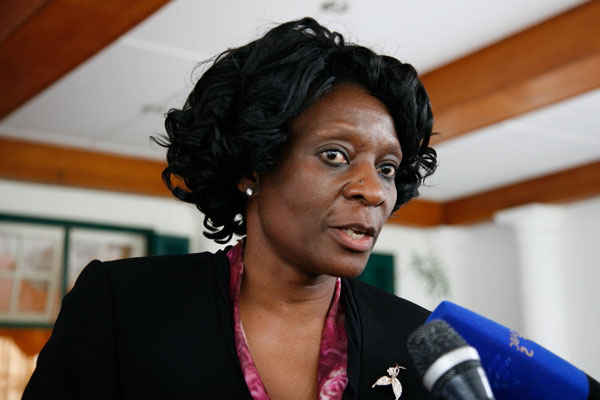
THE Zimbabwe Electoral Commission (Zec) is set to stir another controversy after it emerged that the electoral body is likely to use an old server for the biometric voter registration (BVR) exercise ahead of next year’s elections.
BY OBEY MANAYITI
Zec awarded Laxton Group of Companies the tender to supply BVR kits but the company raised concerns that there were security risks related to the central system to store data, which would be sourced outside their tender agreement.
Zec has been flip-flopping on the acquisition of the crucial central system that will be used to store data with the commission’s chairperson Rita Makarau making conflicting statements on the matter.
She first claimed Zec would have to go for a second tender before making an about turn, saying they already had their system in place.
However, this paper has been informed that the United Nations Development Programme (UNDP) gave Zec the central system, which was previously used by the Constitution Parliamentary Committee (Copac) almost five years ago.
A senior Zec official who requested anonymity confirmed the electoral body received the system from UNDP and immediately linked it to the one used during the constitution-making process.
UNDP previously intended to procure BVR kits on behalf of Zec before the government hijacked the process mid-way.
- Chamisa under fire over US$120K donation
- Mavhunga puts DeMbare into Chibuku quarterfinals
- Pension funds bet on Cabora Bassa oilfields
- Councils defy govt fire tender directive
Keep Reading
“Yes, we might use that system but why are you trying to complicate these things,” said a source within Zec while trying to downplay the boob.
“You see, data is collected from the field and stored in a server.
“Just like your computer, you put in data and [it is] stored in a server, which can be in the form of a hard drive or external hard drive, depending with the size and that is what this server is all about.
“There is no complication here and there is no need to buy a new one each time you undertake a new project.”
The official said it was likely that Zec would use the system.
“I suspect this is the one we are going to use but this will not affect the biometric registration,” he said.
“I don’t see how this will be a problem,” said the official while confirming that the system came from UNDP.
Speaking on the side-lines of an interface with opposition parties and the media on Wednesday, Makarau confirmed to The Standard that the UNDP had provided an upgraded version of the system supplied to Copac.
Opposition and civil society organisations have been raising concern over the manner Zec is conducting itself in terms of voter registration.
They fear Zanu PF, which is electronically updating its structures, will try to manipulate the data storage system and crowd it with its supporters.










